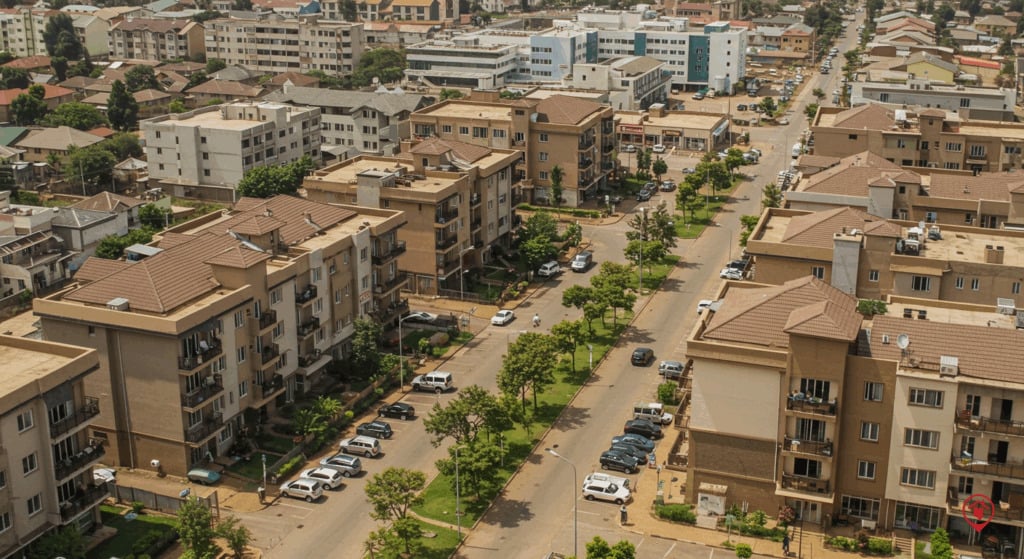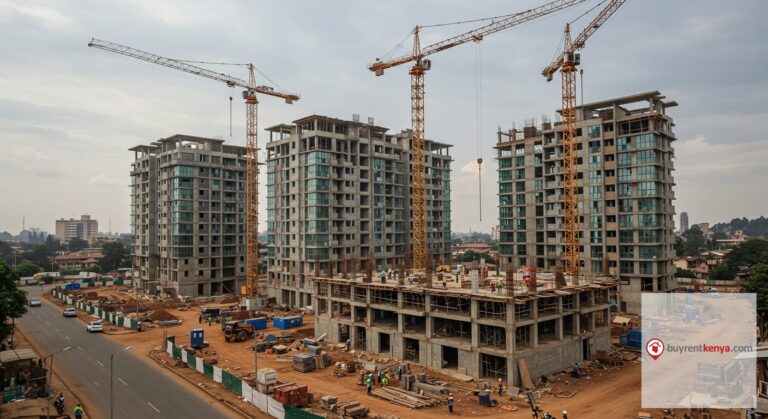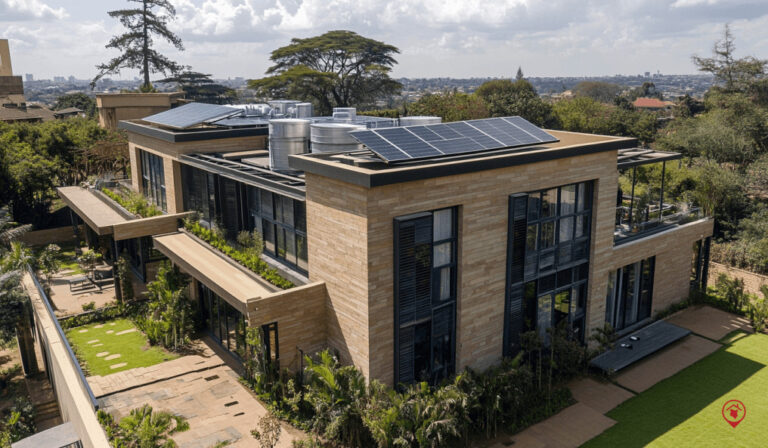The Truth About Apartment Returns in Kenya’s Real Estate Market
About a week ago, renowned politician Ndindi Nyoro addressed a gathering of businesspeople in Nyeri. His remarks on real estate caused quite a stir, particularly among investors and those aspiring to join the property market.
Nyoro’s central point was simple yet provocative: apartments, as an investment, deliver 8% or less of returns and may not be worth the hype. He cautioned first-time investors against jumping headfirst into real estate, insisting there are better ways to grow wealth with higher returns.
He didn’t stop there. Mr. Nyoro also questioned the culture of land banking, buying multiple pieces of land “for the future.” His argument? Many people lock away capital in idle land that may take years, even decades, to yield meaningful returns.
It was a bold statement, one that challenged deeply ingrained beliefs about real estate as the safest and most reliable investment in Kenya.
READ ALSO: How to Spot a High-Return Real Estate Investment in Kenya
A Perspective from the Industry
Nyoro’s concerns are not without merit. Apartments, like any other asset class, can underperform if approached without proper planning. However, what often gets overlooked is that real estate performance is highly dependent on strategy.
From a professional standpoint, every investment carries risk, and real estate is no exception. Apartments may not deliver impressive returns when financed poorly, built in oversupplied areas, or left unmanaged. But with the right approach, from financing and location to tenant management, apartments remain a proven avenue for long-term wealth creation.
Why Apartments Sometimes Disappoint
Mr. Nyoro is not wrong to say that apartment returns can be underwhelming. Here’s why:
- High financing costs: Today, most banks in Kenya offer mortgage rates between 15–18% (outside of special KMRC-backed affordable housing schemes). If you’re borrowing at that rate but your apartment is only yielding 6% annually, the math simply doesn’t work.
- Oversupply in key areas: Places like Kilimani, Kileleshwa, and parts of Ruaka have seen a boom in apartment construction. Too many units chasing too few tenants pushes rents down and slows appreciation.
- Management and hidden costs: Service charges, repairs, tenant turnover, and even periods of vacancy can eat significantly into your rental income, cutting your “headline yield” down to reality.
- Illiquidity: Unlike shares, selling an apartment can take months. If you need quick cash, you’re stuck.
When you look at it this way, Nyoro’s warning to first-time investors is justified. Real estate is not the quick-money machine that many sales brochures make it out to be.
The Other Side of the Story
Despite these challenges, apartments still hold immense value if you play it smart. Here’s what makes the difference:
- Location is everything
An apartment in a high-demand satellite town like Ruaka, Ruiru, or Ngong, where infrastructure is expanding, can bring consistent occupancy and steady growth. Recent market reports put rental yields in these areas at around 5.5% with total returns (including appreciation) closer to 7–9%. - The size and type of unit matters
Larger units often outperform smaller ones. For instance, three-bedroom maisonettes and townhouses have shown yields of 7–8%, higher than studio apartments, which face stiffer competition and lower occupancy rates. - Furnished vs. unfurnished
In certain markets, furnished apartments or serviced units (like Airbnbs) can deliver higher returns, though they also demand better management. For a savvy investor, this can tilt ROI in their favor. - Long-term wealth creation
Real estate might not give you a quick 20% annual return like some aggressive financial instruments, but it offers something equally powerful: stability. With time, both land and apartments tend to appreciate, shielding investors from inflation and currency shocks.
The Reality for First-Time Investors
So, is real estate a “bad” investment for beginners? Not quite. But here’s the catch: if you’re relying heavily on bank loans and expecting quick profits, apartments will frustrate you.
For new investors, the smarter path might be:
- Start small and strategic — consider joining a real estate investment group (chama) or a Real Estate Investment Trust (REIT) to test the waters.
- Choose satellite towns with high rental demand and infrastructure projects. These areas often outperform Nairobi’s saturated estates.
- Think long-term — apartments and land banking work best as wealth preservation and slow compounding strategies, not quick cash machines.
Conclusion
Ndindi Nyoro sparked an important conversation, one that Kenya’s investment community needed to have. His point that apartments often return less than 8% is not wrong, but it’s incomplete.
Real estate isn’t “good” or “bad.” It’s simply a tool. Used carelessly, it can drain your resources. Used wisely, it can provide stable cashflow, long-term appreciation, and a hedge against inflation.
For a first-time investor, the real question is not “Should I invest in apartments?” but rather:
- “Where am I buying?”
- “How am I financing it?”
- “What’s my time horizon?”
If you can answer these honestly and plan strategically, then yes, apartments can still be worth it. Just don’t go in thinking they’ll make you rich overnight.








